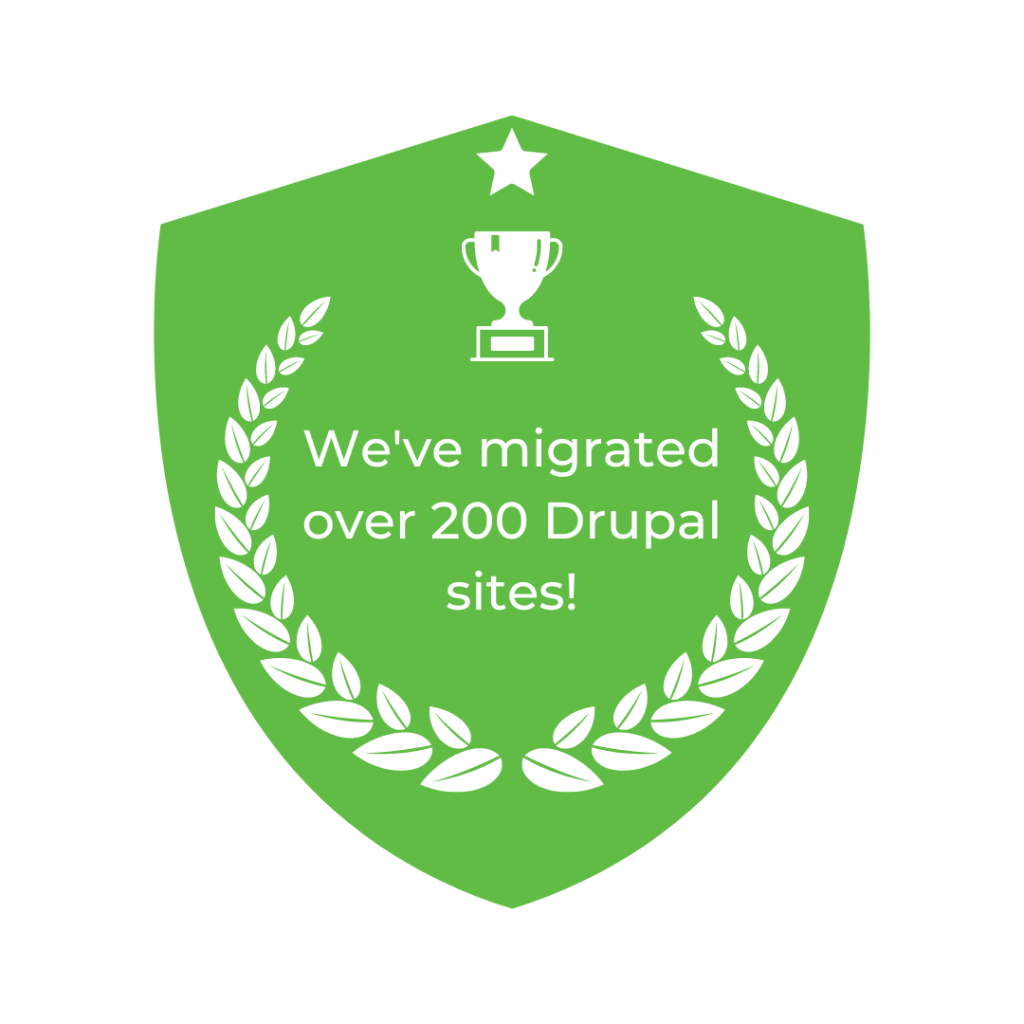Why Migrate from Drupal to WordPress?
Drupal 7, the popular content management system (CMS), will soon reach its end of life. This means that the platform will no longer receive official support or security updates, leaving websites that are still using Drupal 7 vulnerable to security breaches and other issues. In this article, we will explore the impact of Drupal 7 end of life and the actions website owners should take.
What is Drupal 7 End Of Life?
Drupal 7 was first released in 2011 and has been a popular CMS for many websites since then. However, as with any software, Drupal 7 and 9 will both reach its end of life cycle, with Drupal 8 already deprecated . Drupal 7 and 9 end of life will occur in November 2023, which means that the platforms will no longer receive official updates or support from its developers.

Impact Of Drupal 7 And 9 End of Life?
The end of life for Drupal 7 and 9 has several impacts for website owners.
Firstly, without security updates, websites using Drupal 7 and 9 will become more vulnerable to security breaches and attacks. Cybercriminals are always on the lookout for vulnerabilities in software and will exploit them to gain access to sensitive data, such as personal and financial information.
Secondly, without official support, website owners using Drupal 7 and 9 may find it challenging to resolve technical issues that arise. This can lead to costly downtime, which can negatively impact a website’s reputation, user experience, and search engine rankings.
Lastly, Drupal 7 and 9 end-of-life means that new features and improvements will no longer be added to the platforms. This could result in websites using Drupal 7 and 9 becoming outdated and not being able to keep up with evolving trends in web design and functionality.
Actions That Wbesite Owners Should Take
If your website is currently using Drupal 7, 8 or 9, it’s important to take action to ensure that your site remains secure and functional. Here are some steps website owners should consider:
- 1. Upgrade to Drupal 8 or 9: Upgrading to a newer version of Drupal, such as Drupal 8 or 9, is the best way to ensure that your website remains secure and functional. These versions have new features and improvements, as well as ongoing support and security updates.
- 2. Migrate to a different CMS: Another option is to migrate your website to a different CMS. There are many alternatives to Drupal, including WordPress, Joomla, and Magento. Migrating to a new CMS can be time-consuming and require some expertise, but it will ensure that your website remains up-to-date and secure.
- 3. Secure Your Site: If you are not able to upgrade or migrate to a new CMS immediately, there are steps you can take to secure your Drupal 7 site. These include implementing strong passwords, using a web application firewall, and regularly backing up your website.
Why Should I Choose WordPress Rather Than Drupal 10?
Choosing the right content management system (CMS) for your website can be a difficult decision. While Drupal 10 is a powerful platforms, WordPress has several advantages that make it the preferred choice for many website owners. Here are some reasons why you should choose WordPress over Drupal 10.
1. Ease of Use
One of the main advantages of WordPress is its ease of use. WordPress is designed to be user-friendly and intuitive, even for non-technical users. Its user interface is straightforward, making it easy to create and manage content, add new pages, and customize the appearance of your website.
In contrast, Drupal 10 has a steeper learning curve and can be more challenging to use for non-technical users. Drupal’s interface can be overwhelming, and it may take some time to learn how to use its many features effectively.
2. Wide Range of Themes and Plugins
WordPress has a vast library of themes and plugins available, making it easy to customize your website’s design and functionality. Whether you want to create an e-commerce site, a blog, or a portfolio, there are many options available to suit your needs.
Drupal also has a good selection of themes and plugins, but it may not have as wide a range as WordPress. Additionally, many Drupal themes and plugins require more technical knowledge to use and customize.
3. Large Community and Support
WordPress has a vast and active community of developers and users, which means that there is a wealth of support and resources available online. If you run into issues or have questions about using WordPress, there are many forums, tutorials, and documentation available to help you.
While Drupal also has a large community and support network, it may not be as extensive as WordPress. Additionally, Drupal’s community may be more focused on technical users and developers, which can be challenging for non-technical users to navigate.
4. Better SEO Performance
WordPress is known for its strong SEO performance, with many built-in features that help websites rank well in search engine results pages (SERPs). WordPress is designed to be search engine friendly, with clean and optimized code, fast page load times, and easy integration with SEO plugins.
While Drupal also has SEO capabilities, it may not be as optimized out of the box as WordPress. Additionally, Drupal may require more technical knowledge to optimize for SEO effectively.
Want to get in touch?
Contact us with your requirements and we’ll get back to you.



